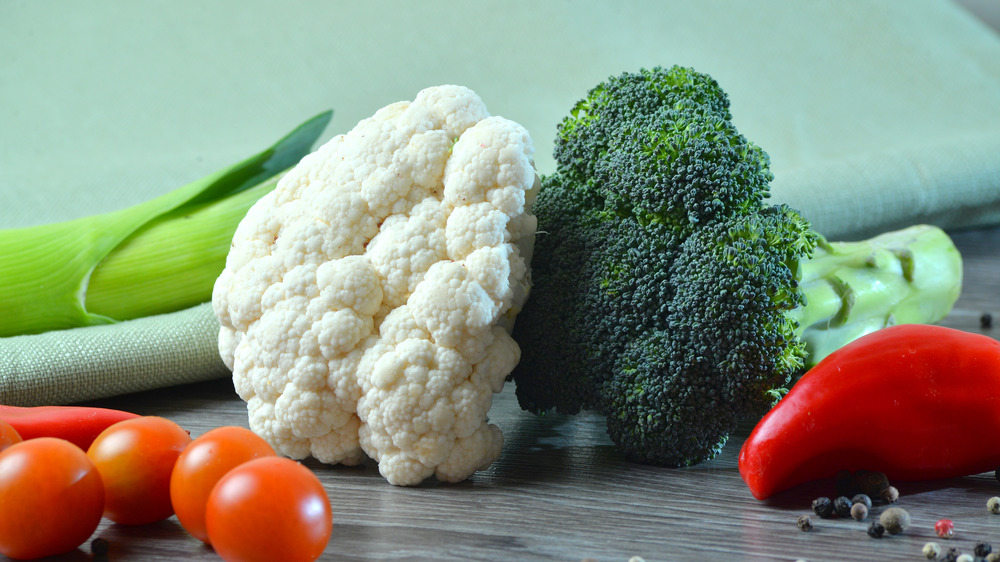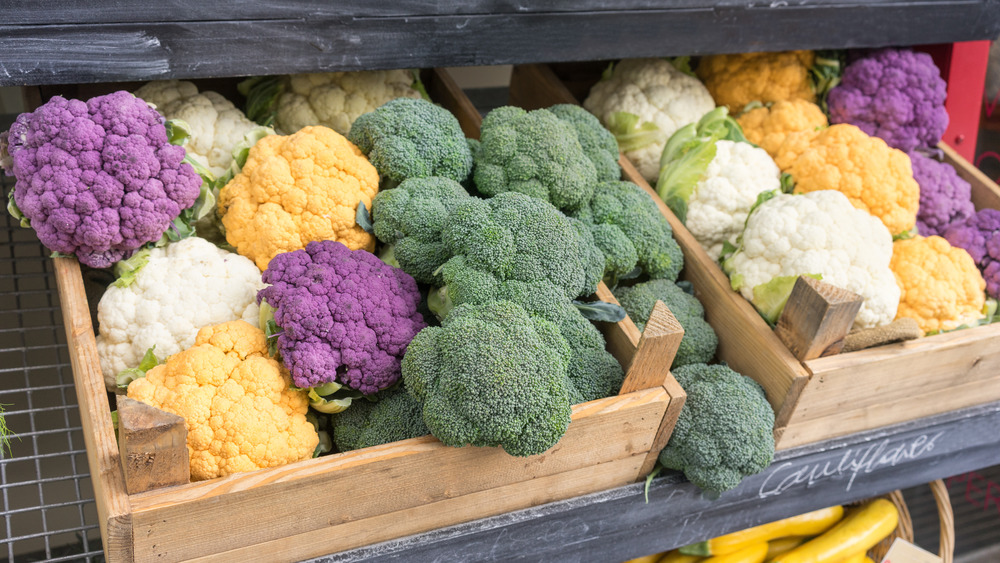Broccoli Vs. Cauliflower: Which One Is Better For You?
The cauliflower craze persists: From rice, to baked buffalo bites, to pizza crust, the little white veggie seems to be winning as an alternate ingredient. But don't discount broccoli as a contender — similar in taste and texture, both cruciferous vegetables can offer you a delightful dish. Fun fact: both of these vegetables stem from the same plant known as Brassica Oleracea, which also produces cabbage, brussel sprouts, and kale (via Business Insider).
You may be wondering which of these veggies is better for you, as both have a similar nutrient panel, with zero fat and minimal sodium, calories, and carbs. According to EatingWell, cauliflower contains one less gram of carbs per cup than broccoli, and three fewer calories. This may not seem drastic unless you abide by the keto diet, which would make cauliflower the better choice. The amounts of fiber, magnesium, potassium, and folate are also comparable.
What are the biggest differences between broccoli and cauliflower?
While these vegetables look the same (aside from the color), there are some differences. Broccoli has more vitamin K — about 63 percent more per serving – than cauliflower (per Healthline). Vitamin K helps build strong bones and bone tissue, but is also necessary for helping clot the blood, which is how the body stops wounds from excessive bleeding (via Harvard Health Publishing). One cup of raw broccoli contains 90 percent of the daily recommended dose of vitamin C, while one serving of raw cauliflower has 57 percent, making broccoli the better choice for those needing more of vitamins K and C (per Healthline).
Both vegetables are high in antioxidants, which are believed to fight free radicals, help prevent cellular damage, and protect the body against certain diseases (per the Mayo Clinic). One study shows that regularly consuming cruciferous vegetables like broccoli and cauliflower may even reduce the risk of heart disease. Both of these vegetables are similar in nutrient value, offer extended health benefits, and because of their low-calorie profiles, can assist in weight loss, making them both good choices. When choosing between the two, let your palate decide!


